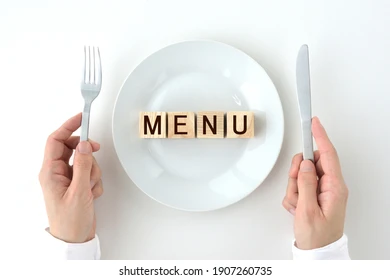How to Manage Dietary Restrictions at Corporate Events
In an ideal world, everyone would eat the same food. Unfortunately, we do not live in an ideal world. The real world is full of many complications, including those related to dietary habits and restrictions.
Catering is already one of the most complex factors of arranging a corporate level. Considering food restrictions for most of the attendees can further complicate the situation.
If you are concerned about the restricted food intake of your participants for your corporate event, keep reading. This article will shed light on some easy-to-follow tips that will help you manage dietary restrictions.
15 Ways to Manage Dietary Restrictions at Your Corporate Event
If you are organizing a large-scale corporate event, more people will join you at the occasion. Some of them do not prefer consuming meat, while others might have some kind of food allergies. It would be better if you consider these restrictions, following the given tips:
1. Know Various Types of Restriction
Food limitation is not a new concept. It has been in practice for many years. However, in recent times, dietary restrictions have gained immense popularity. Many people do not eat different kinds of meals due to personal, health, or religious reasons.
Therefore, your first step towards managing these limitations is to know whether some of your attendees have any food restrictions among the following:
· Vegetarian or vegan diet style
· Gluten or lactose-free diet
· Halal or Kosher foods
· Diabetes or low-sodium diet
· Low cholesterol food
· Raw or Keto diet
· Health-conscious diet
Knowing if your event’s attendees follow any of the above or other food restrictions can make it easier for you to arrange relevant meals. You can contact the experts at event companies in Dubai to consult how you can manage catering that caters to everyone’s needs.
2. Ask for Food Allergies
Food allergy is the most severe type of diet restriction because it directly impacts a person’s health. Therefore, you need to be more careful about food allergies while selecting the menu for your corporate event.
Food allergy occurs when a person consumes something that either his or her body cannot digest or contains particular allergens. If anyone consumes a meal containing such components, it can cause an allergic reaction.
According to research, more than 170 types of food allergies have been reported so far. The most common foods that cause food allergy are:
· Milk and other dairy products
· Tree nuts and peanuts
· Shellfish and common fish
· Wheat and soy
· Eggs and Sesame
Therefore, you must ask your attendees whether they are allergic to a specific type of food. You can do so by offering a questionnaire with the invitation. This will further pave the way for arranging foods to manage dietary restrictions.
3. Come Up with Different Options
You cannot offer a general meal that caters to each attendee’s preference. This might seem complicated, but it is true. Even if people do not have specific dietary preferences, they like numerous options on their dishes.
Remember there will be four types of people among your attendees:
· Omnivores, who do not have any preference and can eat anything
· Carnivores, who eat meat only
· Vegan or vegetarian, who prefer consuming vegetables
· People with food allergies
And everyone will be expecting their preferred meal. Therefore, you should be willing to offer various options when it comes to food. This way, you can tell people that your corporations respect their dietary choices and care for their health.
4. Labels Foods
One of the easiest ways to address food restrictions at your corporate event is to label foods. Labeling is an important way to tell people what they are consuming.
By doing so, you can provide people with the feasibility to select or reject a particular food item. Your label should answer the following questions:
· What kind of dish is it?
· Does it contain specific components that some people are allergic to?
· Does it appeal to people with particular dietary choices?
You can also make cards containing the above information and place them near each dish. This way, your attendees will know whether they should eat the food or not.
5. Work with Experienced Planner
When it comes to arranging successful corporate events and managing particular dietary restrictions, no one can match the skills of experienced event planners.
These people have the needed set of skills or expertise to steer you in the right direction. They can assist you in planning a personalized catering experience according to dietary restrictions in the following ways:
· Their extensive knowledge can provide you with valuable insight into how you can manage food limitations
· They have connections with the right people and can help you find a restriction-friendly caterer
Therefore, most businesses consult the professionals at event companies in Dubai for consultation regarding arranging a catering solution that can address the dietary restriction problem.
6. Collaborate with a Diverse Catering Team
Engaging a catering team with diverse expertise is essential when managing varied dietary restrictions. Collaborate with chefs who specialize in vegetarian, vegan, gluten-free, and other specific dietary requirements. This ensures a comprehensive understanding of each restriction, allowing for the creation of a diverse and inclusive menu.
7. Interactive Food Stations
Consider incorporating interactive food stations into your event layout. These stations can cater to specific dietary preferences and provide attendees with the freedom to choose items that align with their restrictions. From build-your-own salads to personalized protein bowls, interactive stations add a dynamic element to the dining experience.
8. Pre-Event Communication
Enhance attendee engagement by initiating pre-event communication regarding dietary preferences. Include a section in the RSVP or registration form where participants can specify their restrictions or preferences. This proactive approach enables the event planning team to tailor the menu accordingly and ensures a smoother dining experience for all.
9. Engage Local and Specialized Vendors
Leverage local and specialized vendors who excel in catering to diverse dietary needs. Whether it’s a renowned vegan bakery or a gluten-free artisanal kitchen, collaborating with experts in specific dietary niches adds authenticity and excellence to the overall culinary experience.
10. Post-Event Feedback and Adaptation
After the event, solicit feedback from attendees regarding their dining experience. Analyze responses to understand what worked well and where improvements can be made. This post-event evaluation provides valuable insights for future planning, allowing the corporate event team to adapt and refine catering strategies based on real participant experiences.
Nurturing a Culinary Inclusive Culture
As corporations increasingly recognize the importance of catering to diverse dietary needs, fostering a culinary inclusive culture becomes integral to event success. Here are essential steps for creating a culture that prioritizes dietary considerations:
A. Continuous Education for Event Teams
Empower event planning teams with continuous education on evolving dietary trends and restrictions. This knowledge equips planners to stay ahead of emerging preferences and ensures they remain well-informed about the latest culinary solutions.
B. Collaboration with Nutritionists and Dietitians
Establish partnerships with nutritionists and dietitians who can provide expert advice on crafting well-balanced and restriction-friendly menus. Their input adds a layer of professional guidance, ensuring that the nutritional aspects of each dish are considered.
C. Incorporate Dietary Considerations in Event Themes
Integrate dietary considerations into the overall theme of the event. For example, if promoting health and wellness, ensure the menu aligns with these values by offering a variety of nutritious and wholesome options. This thematic alignment enhances the overall event experience.
D. Flexible Food and Beverage Budgets
Allocate flexible budgets for food and beverage arrangements to accommodate the additional costs associated with catering to diverse dietary needs. Recognizing the importance of this investment ensures that the culinary aspect of the event receives due attention and resources.
E. Highlight Culinary Diversity as a Corporate Value
Position culinary diversity as a corporate value. Communicate to both attendees and employees that the organization places importance on inclusivity, not just in words but in the culinary experiences it offers. This messaging reinforces a positive corporate image and resonates with a broader audience.
Embracing Culinary Diversity for Future Success
In conclusion, the journey towards seamlessly managing dietary restrictions at corporate events is an ongoing process of refinement and adaptation. By integrating diverse culinary perspectives, collaborating with specialized vendors, and fostering a culture of inclusion, corporations pave the way for future success in event planning.
As dietary preferences continue to evolve, and individuals become increasingly mindful of their food choices, the ability to navigate and accommodate these considerations becomes a hallmark of excellence in corporate event management. Embrace the diversity of dietary needs, and let it become a catalyst for creating memorable and inclusive corporate events
How to Consider Food Restrictions While Planning a Corporate Event?
People are more conscious about their dietary restrictions than ever. Therefore, corporations need to consider these limitations while planning their events. There are several ways to manage the issue. For instance, you can increase your knowledge about various types of restrictions, ask attendees about food allergies, label meals, and provide several options. Moreover, consulting an experienced event planner is also helpful in this regard.
In conclusion, the journey towards seamlessly managing dietary restrictions at corporate events is an ongoing process of refinement and adaptation. By integrating diverse culinary perspectives, collaborating with specialized vendors, and fostering a culture of inclusion, corporations pave the way for future success in event planning.
As dietary preferences continue to evolve, and individuals become increasingly mindful of their food choices, the ability to navigate and accommodate these considerations becomes a hallmark of excellence in corporate event management. Embrace the diversity of dietary needs, let it become a catalyst for creating memorable and inclusive corporate events, and watch as your commitment to culinary inclusivity fosters lasting connections and positive impressions among attendees.


